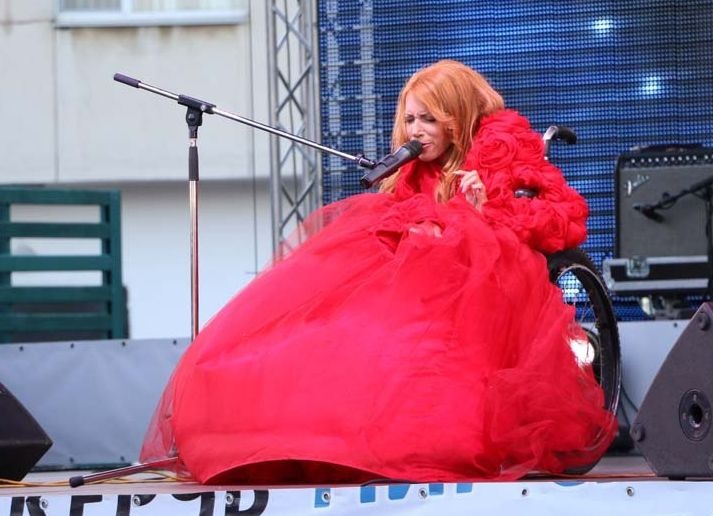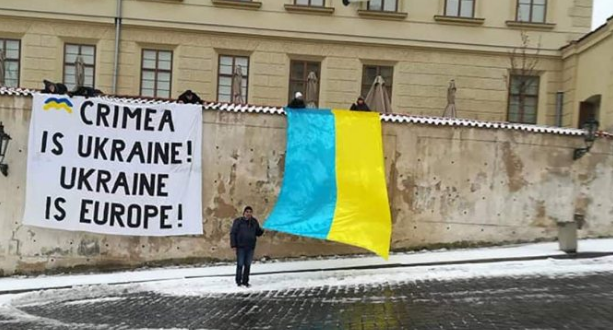Vladimir Putin, who exploited Russian euphoria over the Anschluss of the Ukrainian peninsula of Crimea three years ago to boost his own power, now wants Russians to pay less attention to that region so that they will not be as inclined to complain about the costs to them of that annexation, according to Yevgeniya Goryunova.
“Russian euphoria about the annexation of Crimea has significantly weakened under the press of social and economic problems,” the Crimean political scientist says. “The Crimean theme is losing its importance,” and the only aspect of it that Moscow outlets now talk much about is the Kerch bridge
.
In 2014-2015, Putin made “the sacred importance” of Crimea the centerpiece of his speeches, but already by 2016, as the economic crisis in Russia deepened and the costs of the occupation became more obvious, he shifted away from this theme. And by the end of that year, the Kremlin leader mentioned the annexed peninsula only in passing.
That both drove and reflected changing Russian attitudes, Goryunova says. On the one hand, “with each passing year,” the share of Russians who believe that Crimea is part of Russia has grown, from 89 percent in March 2014 to 97 percent now, although polls suggest Russians are less confident that the Anschluss has been a good thing for them.
But on the other, the share of those who viewed the annexation in a negative way has grown from 18 percent to 23 percent over the last three years, according to the independent Levada Center surveys, although the Kremlin-linked VTsIOM pollsters say that those opposed, after rising between 2014 to 2016 has fallen this year from 22 percent to 13 percent.
Perhaps more important for Putin’s decision to reduce public attention to Crimea are some two other poll numbers. VTsIOM reports that the share of Russians opposed to giving special aid to Crimea has risen from 21 percent in 2014 to 84 percent now, and the Levada Center says that 55 percent of Russians oppose cuts in programs benefiting them to help the peninsula integrate into Russia.
“The single thing which still generates interest among Russians is the construction of the Kerch bridge,” which the Moscow media re treating as a Russian analogue to Soviet projects like the Baikal-Amur Mainline. As long as construction on the bridge is going on, Crimea will get some coverage in Moscow outlets.
But Crimea is something Russians think about less and less, the political analyst says; and that will be true even if the Kremlin changes the date of Putin’s re-election to make it coincide with the official annexation of the Ukrainian peninsula. After that, the regime clearly hopes, it will become just one more Russian region.
“The Putin regime passionately needs rapid results,” the analyst continues; and “therefore for the Russian leader in this case, the best way out will be to mention Crimea as rarely as possible,” to allow it to recede into the myths of the past as just the “latest” Russian acquisition rather than the unique and special one Putin insisted upon only a few years ago.
Related:
- Is Moscow about to transform occupied Crimea into an Islamist enclave?
- Council of Europe demands Russia reinstate Crimean Tatar Mejlis, allow leaders to enter Crimea
- The death of the Massandra winery in occupied Crimea
- ‘With Crimea, we got Poklonskaya,’ some Russians say in disgust
- ‘Crimea effect’ weaker but still significant for the Kremlin, experts say
- Russia’s Crimean Tatar captive goes on hunger strike demanding justice
- With Crimean Anschluss, Putin blocked Maidan from spreading to Russia, Shiropayev says
- The Crimean Anschluss at three: ‘A jubilee of stupidity and criminality’
- Five signs of less than universal Russian approbation of Crimean Anschluss
- Hitler’s Anschluss and Putin’s: Similarities and differences
- Putin’s Anschluss of Crimea saved Ukraine from going back to its old ways, Kazarin says
- Umerov case highlights why Crimean Anschluss a threat to Russians, Portnikov says
- Imaginary “terrorists” with no terror acts: Russia’s collective punishment of Crimean Muslims





